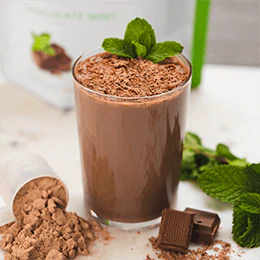Sugar is a big topic in the health world these days – especially if you’re trying to lose or maintain your weight, or simply just trying to eat a cleaner, more nutritious diet. The thing is that although it’s a well-known fact that sugar is unhealthy, it’s still present (yet hidden) in so many common foods, that it can often be hard to keep track of just how much sugar you’re actually consuming.
On top of that, there’s the whole debate of natural sugar vs. added sugar. Though added sugar (or the kind that’s “added” into everything from ice cream to fruit juices to BBQ sauce), is much more of a health concern, there’s still the question, “How much natural sugar should you have per day?”

Try the perfect Sugar-Free Snack: 310 Shake
In this article, we’ll address this concern regarding natural sugar in your diet – especially if you’re trying to lose weight – and what a healthy, balanced dietary plan should look like. You can start to win the battle with your sugar addiction by arming yourself with the info you need to succeed… Read on and start now!
Natural Sugar vs. Added Sugar

When you think of sugar, many different images probably come to mind… There’s the sugar packets you empty into your coffee, the sugar in chocolate, the sugar in milk, and even the sugar in an apple. So what makes some items off limits when it comes to eating a healthy diet, yet others okay?
The answer is the difference between natural and added sugars. Natural sugars are found naturally in food items (such as in fruits, vegetables and even dairy products). Whereas added sugars are extracted from natural foods, and then added into processed foods.
Whereas natural sugars come in highly nutritious foods that bring vital nutrients to your body, added sugars are typically in foods that are quite void of nutrients and high in calories. Due to this, natural sugars get digested differently than added sugars. When consumed in things like fruit and unsweetened yogurt, the natural fibers slow down the digestive process so that you have steady energy and feel satisfied after eating, not ravenous.
In addition, when you consume sugars in their natural form (such as the fructose in fruit), the fiber also prevents the sugar from going directly to your liver – which happens with added sugars. In this way, added sugars can lead to higher blood sugar levels and may also cause the liver produce fat if consumed in excess – making a diet high in added sugars a major risk factor for obesity, diabetes and even heart disease.
For this reason, different health organizations now offer recommendations for upper daily limits for added sugar. While the USDA offers a guideline, the one given by the American Heart Association (AHA) is more strict. The AHA recommendation is that the upper limit of added sugars you consume each day be no more than 100 calories (or 6 teaspoons) for women, and 150 calories (or 9 teaspoons) for men.
But what about how much natural sugar you should have per day? We’ll talk about that next…
How Many Grams of Natural Sugar Can You Have Per Day?
While the USDA does not give an upper limit on how many grams of natural sugar per day you should have like they do with added sugars, they do outline suggestions for a healthy diet in general on MyPlate.com. On this site, they give recommended serving amounts for healthy food groups such as fruit, vegetables and dairy, which all contain natural sugars.
Therefore, if you’re trying to maintain your weight or simply eat a healthier diet that supports optimal wellness, the recommendation is to follow these guidelines. For instance, for most people this looks something like eating around 1-2 cups of fruit per day, 2-3 cups of vegetables, and 2-3 cups of dairy. Exact portion recommendations per age group can be found on the MyPlate website.
So, what if you really, really love fruit or dairy? Can you have more of these things?
If you’re trying to maintain your weight or simply live a healthy lifestyle, the answer to this question is try to aim for a balanced diet – with all things in moderation, even healthy things. For instance, if you’re eating too much fruit or dairy, you won’t have room in your diet for other important elements (such as protein, grains, legumes and vegetables), and you’ll be missing out on those nutrients. That’s why the key is to find balance by eating all of the different food groups each day.
Now, if you’re trying to lose weight instead of maintain, we have a few additional suggestions...
How Much Sugar Should I Eat if I'm Trying to Lose Weight?
If weight loss is your goal, your main concern is first going to be knowing your personalized daily calorie limit in order to make that weight loss possible. Yes, you still want to eat a healthy diet, and in many weight loss plans that includes fruit – but, you have to make sure you stay within the boundaries of your daily calorie goal.
To get your personalized calorie goal for weight loss, use a free online calorie calculator which uses your individual metrics (such as weight, height, activity level, etc.), to find the right amount for you. Then, download a tracking app onto your phone, where you can insert everything you eat to make sure you don’t go over that goal.
You’ll also want to keep in mind that even if natural sugar is healthier for you, it’s still sugar, and it will still be sweet! Therefore, it can lead to sugary cravings, making it more difficult to stay away from actual sugar. However, on the flip side, if eating some fruit satisfies your craving for sugar-filled sweets like candy, cookies, and cake, remember that the fruit is a much better option!
So, if you have a sweet tooth (and any type of sugar, natural or added, can still make you crave sweets), you might want to cut back on natural sugars as well. As a tip, adding healthy, sugar-free organic meal replacement shakes to your diet is a great way to help crush those sugar cravings for a very low amount of calories (and a very large amount of nutrients)!
Finally, if you’re on a specialized weight loss program, such as a low-carb or keto diet, you’ll have an entirely different set of guidelines to follow. Basically, in this instance, when it comes to natural sugar, you’ll only be allowed to eat low-carb vegetables and dairy, plus only very small amounts of low-carb fruits (such as berries). To learn more about what you can eat on keto, check out our Complete Guide to Keto
In Conclusion: Natural Sugar and Your Health
Whether you’re trying to lose weight or just be healthier in general, the bottom line is that natural sugars come from nutritious foods, and can still be a very healthy part of your overall diet. The key is that they have to be consumed in moderation, in balance with other healthy foods.
And if weight loss is your aim, make limiting the daily amount of calories you consume your overarching goal. Plus, make sure eating natural sugar doesn’t cause you to eat more foods with added sugars (like chocolate or ice cream)! As long as you do this, natural sugar definitely has its place in a rich, nutritious and varied diet, along with long-term weight loss plan!
Sources:
https://www.huffingtonpost.com.au/2017/09/14/how-much-natural-sugar-should-we-eat-a-day_a_23208377/
https://www.sweetdefeat.com/blog/natural-sugar-vs-added-sugar
https://www.healthline.com/nutrition/how-much-sugar-per-day


















